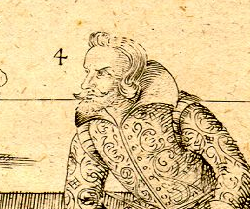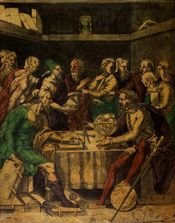|
|
You are not currently logged in. Are you accessing the unsecure (http) portal? Click here to switch to the secure portal. |
Difference between revisions of "Girolamo Cavalcabo"
Jump to navigation
Jump to search
| Line 87: | Line 87: | ||
[[Category:German]] | [[Category:German]] | ||
[[Category:Italian]] | [[Category:Italian]] | ||
| − | [[Category: | + | [[Category:Copy/Pasting]] |
[[Category:Rapier]] | [[Category:Rapier]] | ||
[[Category:Rapier and Dagger]] | [[Category:Rapier and Dagger]] | ||
[[Category:Rapier and Cloak]] | [[Category:Rapier and Cloak]] | ||
Revision as of 21:26, 24 November 2013
| Girolamo Cavalcabo | |
|---|---|
 | |
| Born | 16th century Bologna, Italy |
| Died | 17th century London, England? (?) |
| Relative(s) | Zachara Cavalcabo (father?) |
| Occupation | Fencing master |
| Influences | Angelo Viggiani dal Montone |
| Influenced | André des Bordes (?) |
| Genres | Fencing manual |
| Language | Italian Middle French Early New High German |
| Notable work(s) | Traité ou instruction pour tirer des armes (1597) |
| Manuscript(s) | MS Italien 1527 (1580s) |
Girolamo Cavalcabo (Hieronyme Calvacabo, Hieronimo Cavalcabo) was a 16th century Italian fencing master. He was trained in the Bolognese school of fencing, possibly under Angelo Viggiani dal Montone,[1] and seems to have traveled to London, England in the 1580s or 1590s and set up a school.[citation needed] During this period he also wrote a treatise on the use of the rapier entitled Nobilissimo discorso intorno il schermo ("Most Noble Discourse on Defense"), though it would not be published until 1597. In the early 17th century, he received a position in the court of Henry IV of France as fencing instructor to his son Louis (the future Louis XIII).[citation needed]
Contents
Treatise
| Images | English Translation (from the German) by Kevin Maurer |
Archetype (ca. 1580s) | French Translation (1597) | German Translation (1611)
|
|---|---|---|---|---|
| Text to copy over |
Additional Resources
References
- ↑ This has been asserted by some writers, but it may be a confused interpretation of the fact that Zachara Cavalcabo produced the second printing of Viggiani's book in 1588.

